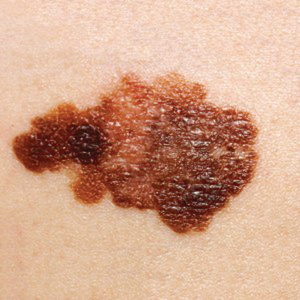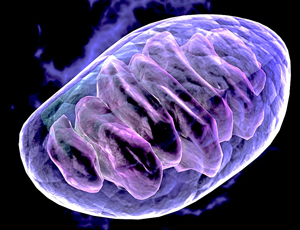‘God Heals and the Surgeon Takes the Credit’
By Dr. Larry Bishop // April 26, 2013
PHYSICIAN PERSPECTIVE
BREVARD COUNTY, FLORIDA – My patient, a wisecracking Bostonian, was giving me a hard time because he wasn’t taking very good care of my surgery, and my impatience with his non-compliance led to his barb, “Doctors have a God complex!”

And, after I sent him on his way with telfa pads, an elastic bandage to protect his surgical site and pointed instructions on how to protect my masterpiece, I started thinking about what he had said.
Of course, he was just joking, but the reality is that his comments are pretty close to the truth.
Not, however, in the way he meant it. In all my years in medicine, even in the hallowed halls of academia, I have never known a doctor who thought he was God. In fact, one of my surgical professors at the University of Pennsylvania, a famous academician who had authored a benchmark treatise on surgical technique said it best. His line, paraphrased from
Philadelphia’s most famous son, Benjamin Franklin, was this: “God heals and the surgeon takes the credit.”
Inexplicable Outcome
A friend’s father had developed melanoma several years previously, before I knew him, and he came to me complaining of small bumps that began to arise under his skin, primarily on his legs, but also on other areas of his body. Immediately, I knew they were metastatic melanoma, arising from his previous cancer.
And that is how many, if not most of us feel. Even the most agnostic among us know there are surgical and medical outcomes, which simply defy explanation, from the “miracle baby” tabloid events to the surgical outcomes, which exceed our wildest expectations. An example of just such an inexplicable outcome came a few years back.
A friend’s father had developed melanoma several years previously, before I knew him, and he came to me complaining of small bumps that began to arise under his skin, primarily on his legs, but also on other areas of his body. Immediately, I knew they were metastatic melanoma, arising from his previous cancer.
‘Let Him Go’
As I discussed the incredibly grim news to him, I saw that he was not ready to accept his fate. He was not ready to die. He loved his family, had an otherwise good life and wanted to do what he could to, as he put it, “stay on this side of the grass.”

A series of quick phone calls to regional cancer centers was fruitless; he was too old, not a surgical candidate, a bad risk for chemotherapeutic intervention. “Let him go” was the universal message.
I went back to him, explained what the regional centers told me, and together we decided to try a different tactic. Instead of going for a global cure, we would instead hunt down each of the metastatic lesions, which were palpable, and cut them out. It would perhaps buy some time, perhaps not.
And so, over the course of the next week, we removed every single lesion we could identify, even though we knew that he was most likely riddled with small, microscopic metastases throughout his body. The surgeries were taxing on both doctor and patient, and at the end of our campaign, we were both ready to be done with it.
Logic Defied, Expectations Exceeded
What happened next, I think, surprised the both of us. Nothing happened. He healed uneventfully, and despite careful examination of his surgical sites and the rest of his skin, we could not find a single new nodule.
Weeks gave way to months, and then to years. Logic was defied, expectations were exceeded. Each time we saw one another, we shared a bond as if we were members of a secret society. The Society of Inexplicable Results.
Weeks gave way to months, and then to years. Logic was defied, expectations were exceeded. Each time we saw one another, we shared a bond as if we were members of a secret society. The Society of Inexplicable Results.
My follow up appointments with him became more infrequent, as it became apparent that he was doing well. I marveled at how well he did, and how fortunate I was to be a part of his miracle.
Three wonderful, disease-free years later, after a thousand days of eating breakfasts with his beloved wife, sharing moments with his family and playing hundreds of rounds of golf, he passed away. Not from cancer, but from a heart attack. He was at peace with his world, and his time finally had come.
An Unseen Hand
We who participate in these moments, whether we are surgeons or internists or radiation oncologists, know there are countless moments like these. An unseen hand takes all the probabilities, shakes them up, and gives us an unexpected, inexplicable result.

In my world, we think in terms of diagnosis, followed by treatment, which yields a result. But, the miraculous occurs at each step of the way. What about the patient who just happens to step out of a car at the exact instant his childhood friend, a dermatologic surgeon, happens to notice that under the cuff of his pants was a very dark spot?
What about the woman who has a gall bladder attack, and in the ensuing work up finds out she has early, curable kidney cancer? Or the cancers, which, while usually refractory to chemotherapy or radiation, melt away in response to treatment?
Miraculous Events Will Defy Explanation
I don’t pretend to have a universal answer, which will satisfy my readers.

But in the great span of human existence, we will see miraculous events, which, no matter how well we know the DNA of the patient, the structure of the mitochondria and the mechanism of metastasis of cancer, still will defy explanation.
So, to answer my patient, we don’t have a God complex. Not at all. We just do the best we can, devote our training as best as we possibly can to our patients, and, as Ben Franklin said, God heals. And, because we can’t figure out any other way to account for the outcomes, we, the doctors, take the credit.
ABOUT THE AUTHOR
Dr. Larry Bishop attended Wright State University Medical School, and then went on to the University of Pennsylvania where he completed a surgical internship.

He followed with his residency in Dermatology at Wilford Hall Medical Center in San Antonio, Texas. While at Wilford Hall, he served as an exchange resident at the world’s oldest hospital dedicated to dermatology – Hospital Saint-Louis in Paris, France. Dr. Bishop spent nine years in the U.S. Air Force and traveled the world as Bob Hope’s personal physician during his USO tours.
Dr. Bishop specializes in cosmetic and surgical dermatology, including Mohs Micrographic Surgery and non-surgical rejuvenation of the face. You contact Dr. Bishop by calling 321-751-9097.
CLICK HERE TO SEE RELATED STORY: Dr. Larry Bishop Parlays Wine Knowledge For Worthy Causes












